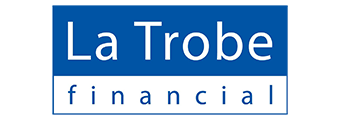So, you've decided to dive into the world of SMSFs. Congrats!
You're taking the reins on your super, which means you can steer the growth of your retirement savings.
But with great power comes great responsibility.
To keep your SMSF in check, you must comply with the SIS Act, which sets the rules for all super funds.
After all, when a person manages an SMSF, they aren't managing their own funds, per se.
Rather, they're managing a fund of which they are the beneficiary, and they must make sure they don't contravene the SIS Act when doing so.
But what exactly is the SIS Act, and what key parts should you be across? Let's dig in.
Understanding the SIS Act
"SMSFs have been around since 1999 when the SIS Act was amended to create this new type of small superannuation fund, regulated by the Australian Tax Office (ATO)," Susan O'Connor Accounting principal and SMSF specialist Susan O'Connor told Your Mortgage.

Susan O'Connor Accounting principal Susan O'Connor. Image supplied
The SIS Act is the legislative framework that lays out the requirements for the operation of superannuation funds, including SMSFs.
It, along with the Supervision Industry Regulations, makes up what we call 'super laws'.
These laws aim to make sure superannuation savings are properly managed and invested to provide retirement income for members.
"SMSFs are highly regulated," Ms O'Connor said.
"The super laws are complex and there are a lot of rules around what you can and can't do in an SMSF.
"If unsure, always seek the advice of a licensed SMSF expert."
Key responsibilities of SMSF trustees
"The main responsibilities of an SMSF trustee, set out in the SIS Act, are to act honestly, act in the best interests of the members, and to know, understand, and meet their responsibilities," Ms O'Connor said.
Ultimately, SMSF trustees need to make sure their actions and records would be given the tick of approval if their fund was to be audited by the ATO.
They must also ensure the SMSF's annual tax return is audited and lodged on time and all investments made by the SMSF are within the bounds of super laws.
"All investment decisions must be in the best interest of the members and meet the sole purpose test," Ms O'Connor said.
"They must be permitted by the SIS Act, allowed by the SMSF Trust Deed, and permitted by the investment strategy."
As per the SIS Act, here are some of the main rules that SMSF trustees should have a solid grasp on:
1. Sole purpose test
According to the SIS Act, SMSFs must be maintained for the sole purpose of providing retirement benefits to members, or their dependents if a member passes away before retirement.
The sole purpose test exists to ensure this is the case.
"No immediate benefit can be provided to members or their related parties," Ms O'Connor said.
"So, for example, property must not be lived in or rented by a member or any member's related parties."
2. Separation of assets
Trustees must make sure assets held by a SMSF are completely separate from any personal or business assets.
"The easiest way to do this is to have a separate bank account for the SMSF and ensure all assets are held in the correct legal name of the SMSF," Ms O'Connor said.
"Also, the company that acts as trustee for the SMSF should be a special purpose company and not a trading company to avoid mixing assets or money.
3. Arm's length rule
All investments made by an SMSF must be conducted on a commercial, or 'arm's length', basis.
This means all investments and transactions should be conducted at market rates. There are also restrictions on trading assets with members, their friends, and their family members.
An SMSF can only buy assets from a related party if they do so at a market rate and the asset is either a listed security (e.g., shares or bonds listed on the stock exchange) or business real property (meaning land or buildings used only for business activities), Ms O'Connor noted.
"When related parties deal with each other and they do not deal at 'arm's-length' it is called Non-Arms Length Expenditure/Income (NALE/NALI)," she said.
"The SIS Act is extremely complex but seeks to penalise any non-arm's length dealings … by imposing extra tax."
4. In-house asset limits
The 'at arm's length' rule isn't the only one governing dealings between SMSFs and related parties. An SMSF also must abide by the in-house asset limit - limiting dealings with related parties to 5% of a fund's assets.
Dealings considered under in-house asset limits include:
- Investments in a related party
- Loans to related parties
- The leasing of an SMSF asset to a related party
Ms O'Connor notes that there are exceptions to this rule when it comes to dealing in business real property and certain investments in some unit trusts.
5. Investment strategy
"Trustees need to have an investment strategy in place as soon as the SMSF is established stating how they intend to invest the SMSFs funds," Ms O'Connor said.
A SMSF's investment strategy must be tailored to it, and should detail the fund's goals and objectives in a future-focused manner - it's not a document that should record the past.
It's an area in which the ATO has targeted in recent times, Ms O'Connor warns.
Those unsure about what to input into an investment strategy can make use of resources on the ATO website.
6. Contributions and withdrawals
Like with any superfund, there are also limits on when you can withdraw from your SMSF and how much you can contribute each year while still realising tax benefits.
Trustees must meet a 'condition of release' before they can access their superannuation wealth. People tend to meet a condition of release when they turn 65, or if they've retired after the age of 60.
"If you do not meet a condition of release [and withdraw super], the ATO will consider that you have illegally accessed your super, which is a breach of the SIS Act," Ms O'Connor said.
SMSF trustees are also limited by how much they can contribute each year while still realising a 15% tax rate.
SMSF auditing to ensure SIS Act compliance
To make sure you're abiding by the super laws, your SMSF will need to be audited each year.
One key responsibility of a trustee is arranging an approved SMSF auditor to conduct the audit each financial year, Ms O'Connor said.
During the audit, the auditor will look for breaches of the SIS Act and, if they find any, they'll report it to the ATO.
"Failure to comply with the SIS Act may mean the ATO may take action against the trustees and impose various penalties," Ms O'Connor said.
"[These can include] financial penalties, disqualifying trustees, freezing the assets of the SMSF, or making the SMSF non-compliant, which would mean it is no longer eligible for the concessional tax rate of 15% and will pay the top tax rate of 45%.
"One of the first requirements of an SMSF trustee is to sign an ATO declaration within 21 days, stating they understand their responsibilities as a trustee."
What are the most common SMSF contraventions?
In the 2021-22 financial year, the ATO reported that nearly 3% of SMSF trustees breached their responsibilities.
The most common contraventions included providing loans or financial assistance to members, exceeding in-house asset limits, and failing to maintain the separation of assets.
Other common breaches of the SIS Act, according to Ms O'Connor, involve accessing super funds illegally.
"Members and trustees cannot treat the money [in an SMSF] as their own and spend it as they wish," she said.
She also warns that, if an SMSF trustee or member were to 'lend' money from the fund to themselves and replace it, it would constitute a withdrawal and contribution. If they don't meet a condition of release, it could be a breach of the SIS Act.
What to do if your SMSF has breached the SIS Act
All that leads us to the question of what to do if you've found or you suspect your SMSF has breached the SIS Act.
If you have identified an issue, or even a potential issue, it's important to reach out to experts for help.
"The ATO has an excellent SMSF early engagement and voluntary disclosure service," Ms O'Connor said.
"It is important to work with a licensed SMSF expert as early as possible who will assist you to engage with the ATO and propose a plan to deal with any contraventions and how you are going to rectify the situation."
Are you considering buying a property through your SMSF? Check out some of the most competitive SMSF loans deals below.
| Lender | Home Loan | Interest Rate | Comparison Rate* | Monthly Repayment | Repayment type | Rate Type | Offset | Redraw | Ongoing Fees | Upfront Fees | Max LVR | Lump Sum Repayment | Additional Repayments | Split Loan Option | Tags | Row Tags | Features | Link | Compare | Promoted Product | Disclosure |
|---|---|---|---|---|---|---|---|---|---|---|---|---|---|---|---|---|---|---|---|---|---|
6.74% p.a. | 6.76% p.a. | $3,240 | Principal & Interest | Variable | $null | $230 | 70% |
| Promoted | Disclosure | |||||||||||
6.99% p.a. | 7.04% p.a. | $3,323 | Principal & Interest | Variable | $0 | $220 | 70% | Disclosure | |||||||||||||
6.84% p.a. | – | $3,273 | Principal & Interest | Variable | $0 | $995 | 80% | ||||||||||||||
7.00% p.a. | 7.39% p.a. | $3,327 | Principal & Interest | Variable | $0 | $445 | 60% |
Photo by Marc Najera on Unsplash
Speak to an SMSF lending specialist
Whether you're looking to refinance or purchase investment property with your SMSF our partners can help you find the right SMSF home loan.
Collections: SMSF








Share